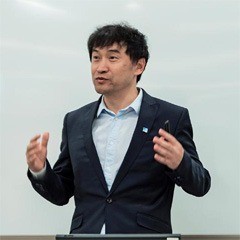In an exclusive interview with 36Kr, Professor Long Chen shares his insights on ESG (Environmental, Social, and Governance), revealing a different perspective beyond the conventional compliance and investment narratives. Interestingly, he discusses ESG as a dynamic business story that is driven by imagination. This perspective encourages a more measured approach to the current ESG trend: companies at different stages of development operate within different ESG climates, which means that companies must find the corresponding rhythm and set realistic expectations for the challenges ahead when pushing through ESG. Ultimately, ESG is an embodiment of human nature. According to Professor Chen, it is only possible to excel in ESG when we understand human nature.
01. To have a successful ESG strategy, one must understand human nature.
36Kr: How do you interpret “imagination” when talking about compliance in ESG?
Long Chen: To implement ESG in companies, we need a win-win mechanism that motivates all parties with built-in benefits. This is like how a well-functioning economy operates—people are eager to participate when they see value. ESG should be the same.
Designing such a business mechanism requires creativity and imagination. In this sense, ESG shouldn’t just be about compliance; it should solve problems and spark new vitality. Just as every business advancement involves creativity, a successful ESG strategy creates value for companies, which reinforces companies’ engagement with ESG, making it an effective business design.
for companies to consistently buy into ESG, the system designer must understand human nature
This is a smart approach to make ESG sustainable. In other words, for companies to consistently buy into ESG, the system designer must understand human nature—the intriguing part of business design. We shouldn’t just talk companies into ESG from a moral high ground; instead, we should design the system in a way that companies and users, once they see the value in the process, are willing to get involved. ESG shouldn’t be cold, rigid and against human nature. Otherwise, nobody will be willing to practice ESG.
36Kr: You promoted ESG through strategic initiatives at Alibaba when you were the CSO there. Do you think this is the right approach? If a company wants to drive ESG, what apartment or who should lead the efforts for best results?
Second, the company needs to establish a governance mechanism for ESG practices which isn’t subjective to individual preferences or changes of the leadership team.
Long Chen: It depends on how the company views ESG. Several things are crucial [to figure out]: first, what is ESG’s strategic positioning in the company and what is its relationship with the company? Second, the company needs to establish a governance mechanism for ESG practices which isn’t subjective to individual preferences or changes of the leadership team. Third, the company needs a thoughtful business design to integrate ESG into its business operation so that everyone can see its positive impact on the performance.
For example, we at Alibaba proposed the idea of “Scope 3+” to empower our company and our supply chains to reduce emissions generated by a wider range of participants in Alibaba’s ecosystem. We consider ESG more than just for compliance purposes at Alibaba but an effort beneficial for our future business growth and certainty. By integrating ESG, companies can also develop new capabilities.
36Kr: Is this a replicable path for other companies?
Long Chen: The “Strategy-Governance-Business” approach to integrate ESG applies mainly to larger companies as they are typically more mature in social responsibility practices and brand perception. However, companies have different development paces, and we must respect that. They have varying priorities and needs. Some businesses are not ready or motivated enough yet to embrace ESG, especially with the above approach. If business leaders force it, they could meet significant internal resistance.
I believe it’s essential to for a company to define the relationship between its business and ESG based on its development stage—this will determine whether ESG is a tool of compliance, strategy, or business, and where to start and focus efforts.
36Kr: How do you view the recent surge in new ESG standards?
Long Chen: For most companies, ESG is unlikely to become a top priority unless under external pressure. When economic interests conflict with carbon neutrality goals, even at the national and government levels, there is hesitation and trade-offs, let alone for companies.
I see these new ESG standards as opportunities for businesses. Specifically, companies can leverage ESG to enhance their brand and consumer perception. ESG provides a new window and communication mechanism for companies to express themselves.
ESG provides a new window and communication mechanism for companies to express themselves.
Previously, companies were judged mainly by their financial performance—whether they were profitable, healthy, and growing. The relationship between a company and society, and its internal governance, were not fully reflected in financial reports. Now with these ESG standards, companies have this huge opportunity in front of themselves to communicate the other side of their stories.
However, practicing ESG takes time; it requires ongoing commitment. Throughout this process, ESG is not just about compliance or idealism—but about understanding human nature. The essence of business is a win-win game for all parties, and ESG serves as the connecting link between these parties.
02. AI is not a burden on sustainable development
36Kr: There has been a lot of discussion recently about the relationship between AI and sustainability. What are your thoughts on this?
AI is certainly not a burden on sustainable development
Long Chen: This is an excellent ESG topic. Overall, AI is certainly not a burden on sustainable development. However, at the current stage, the tension between the two is inevitable. People are already considering the potential energy bottleneck that AI development might encounter and are looking for new energy solutions. This is because AI is currently in a phase of intense, energy-intensive growth, which puts significant pressure on energy efficiency and production. But this reality will, in turn, boost various capabilities. For instance, data centers are now a critical pillar, and their development, coupled with renewable energy and power generation, will significantly advance the alignment of AI and sustainability. This presents many business opportunities.
36Kr: Compared to the past, now it is a time when technology evolution and sustainable development are more closely intertwined. Many business leaders have been thinking about how to integrate AI with green and sustainable development from day one.
Long Chen: This is a matter of ESG practices in technology. We must first address the ESG issues within technology for it to progress. As technology advances, it must also meet ESG standards. This needs to be done early on so that being green becomes a differentiated competitive advantage. For AI to align with sustainability, this challenge must be addressed.
Note: This article is originally published on 36Kr’s website in Chinese.
https://36kr.com/p/2888822794165127






















